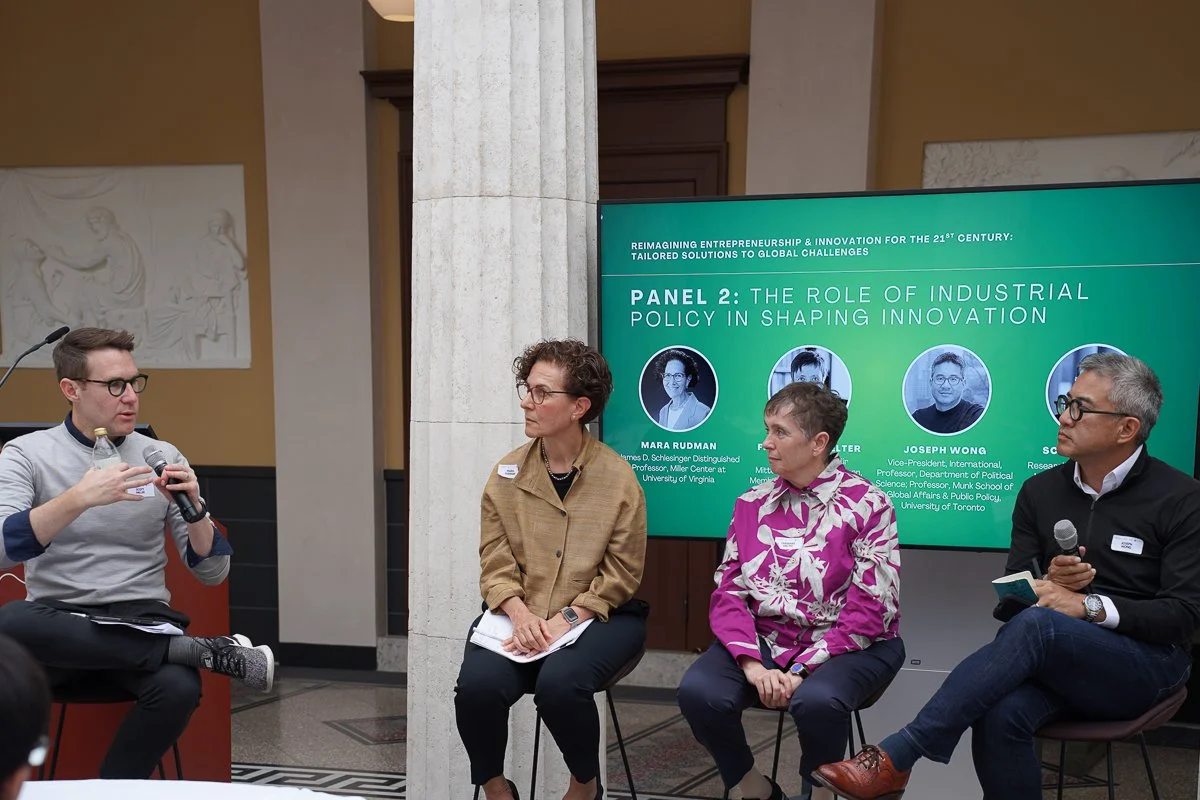The Role of Industrial Policy in Shaping Innovation — A Panel at the Reimagining Entrepreneurship Conference in Copenhagen
Panelists:
Mara Rudman, James D. Schlesinger distinguished professor, Miller Center at University of Virginia
Friederike Welter, President, Institut für Mittelstandsforschung Bonn
Joseph Wong, Vice-President, International, Professor, Department of Political Science; Professor, Munk School of Global Affairs & Public Policy, University of Toronto
Moderator: Scott C. Miller, Research Assistant Professor, Miller Center and Courtesy Appointment, Darden School of Business
This panel explored the evolving landscape of industrial policy across regions, with a focus on its strategic goals, ideological tensions, and practical tradeoffs.
The panelists agreed that “industrial policy” encompasses a wide array of government interventions aimed at shaping economic and security outcomes not only through subsidies and vertical targeting but also through regulatory frameworks, tax policy, and public–private partnerships. In the US, this includes recent legislation such as the CHIPS and Science Act; in Europe, there is an ongoing shift toward a “horizontal” approach, integrating industrial, innovation, and competition policies in service of digital and green transformation.
From a historical perspective, East Asian economies have used industrial policy to achieve rapid “catch-up” development through strategic subsidies, R&D funding, and global value chain integration. But the panelists cautioned that the tools suited to industrial upgrading may not be fit for today’s goals of cutting-edge innovation, which requires new risk-mitigation strategies and more adaptive institutional arrangements.
Several speakers stressed that modern industrial policy cannot be purely national in scope. Cross-border cooperation, especially around critical minerals and clean energy supply chains, will be essential. The challenge is political: in both the US and EU, domestic backlash and nationalist pressures have complicated regional integration and hindered efforts to build more cohesive industrial strategies.
Taiwan was cited as a model of strategic complementarity, having successfully integrated into global value chains through specialization rather than pursuit of unicorns. The panelists urged policymakers to focus on building sustainable ecosystems, especially for SMEs and “hidden champions,” rather than replicating Silicon Valley models that may not suit their economies.
Date: Wednesday, July 23, 2025
Time: 11:00 a.m.–12:30 p.m.
Location: The Carlsberg Akademi, Copenhagen

